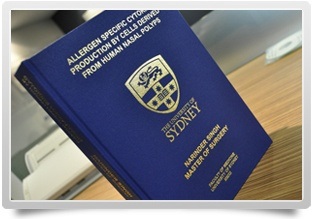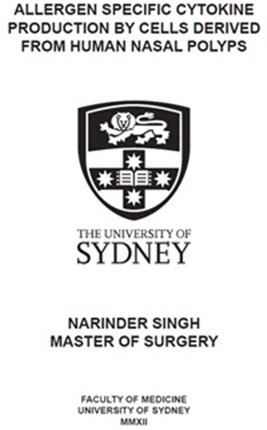Nasal Polyps
- Does your nose feel blocked by nasal polyps?
- Do you have a reduced sense-of-smell because of nasal polyps?
- Would you like to breathe normally through your nose by having your nasal polyps removed?
Read below to find out how your nasal polyps can be removed so that you can breathe through your nose:
What are nasal polyps?
Nasal polyps are grape-like lumps of tissue that grow inside the nose and sinuses.
What kind of problems do nasal polyps cause?
The most common problems caused by nasal polyps are:
- Blocked nose
- Reduced sense-of-smell
Other problems caused by nasal polyps can include some or all of the following:
- Nasal congestion/ Stuffy nose
- Mouth-breathing
- Noisy breathing
- Snoring
- Sleep disturbance
- Waking up tired
- Waking up with a dry mouth
- Waking up feeling thirsty and having to drink water
- Sore throats
- Tiredness
- Sleepiness during the day
- Reduced sense-of-smell and taste
- Runny nose
- Post-nasal drip
- Sinus pains
- Headaches
- Facial pains and pressure
- Sinus problems
How can I tell if I have nasal polyps?
Always see your GP first. Your GP will look inside your nose and may order some tests or prescribe some medications. If your GP cannot treat your nasal polyps, ask your GP for a referral to see Dr Singh.
What tests might my GP arrange?
Some of the tests that your GP may arrange include:
- CT scan - This can show if you have nasal polyps, as well as your nose and sinus anatomy.
- Skin prick tests - These can show if you have allergy (Allergic Rhinitis)
- Blood tests (Allergen-specific IgE/ RAST/ ImmunoCAP) - These can show if you have allergy (Allergic Rhinitis). Blood tests are not as accurate as skin prick tests but are easier to arrange.
What treatments can my GP arrange?
Some of the treatments that your GP may recommend include:
- Nasal saline rinse - This washes out the inside of the nose and sinuses.
- Nasal steroid sprays - These may temporarily shrink the lining of the nose and your polyps to allow a little more air through.
- Antibiotics - These may help treat any inflammation or infection.
- Strong medications - These may be used to temporarily shrink your polyps. These medications may have dangerous side effects and can only be used under strict medical supervision.
What if my GP's treatment doesn't work?
Ask your GP for a referral to see Dr Singh.
How can Dr Singh find out if I have nasal polyps?
Dr Singh is a nose and sinus specialist. Dr Singh uses special tests to examine your nasal polyps.
Dr Singh will pass a super-fine camera into your nose to look at your nasal polyps and sinuses (the nose is made numb first using a special numbing spray). You can watch the camera on a TV monitor and see your polyps for yourself.
What other tests can be ordered?
Some other tests that Dr Singh may order include:
- CT scan - This can show the extent of your nasal polyps and the anatomy of your nose and sinuses.
- Skin prick tests - These can show if you have allergy (Allergic Rhinitis)
- Blood tests (Allergen-specific IgE/ RAST/ ImmunoCAP) - These can show if you have allergy (Allergic Rhinitis). Blood tests are not as accurate as skin prick tests but are easier to perform.
- Rhinomanometry and Acoustic Rhinometry - These scientifically measure the airflow through your nose
Our practice is unique as we have a CT-scanner on-site, along with an in-house allergy-nurse who can perform accurate testing of your allergies and nasal airflow. This means all tests can be finished in one visit, instead of repeated appointments.
Despite all the tests and high-technology available, the single most accurate tool is your doctor's knowledge, training and experience!
Can my nasal polyps be fixed?
Yes.
In almost every case, nasal polyps can be effectively treated.
How are nasal polyps treated?
The treatment used will depend on Dr Singh's assessment. Treatment typically involves Surgery and Medications.
Surgery includes some or all of the following:
- Polypectomy: This clears out all of your polyps
- FESS (Functional Endoscopic Sinus Surgery): This makes your sinus openings larger to reduce problems in the future and improve access for medications.
- Septoplasty: This corrects any septal deviation
- Inferior turbinoplasty: This helps unblock your nose
- Lothrop procedure: This enlarges the sinus openings in your forehead
Dr Singh uses a special "Computer Surgical Navigation" System to maximise polyp removal while avoiding harm to nearby anatomical structures.
After your procedure, Dr Singh prescribes specific medications to slow polyp return.
Are there any alternative treatments to surgery?
Yes. There are always options and it is always your choice as to whether to proceed with surgery. In general, you can try other options first and choose surgery when nothing else works. Non-surgical options include:
- Do Nothing. If your problem is not severe, you may choose not to have any treatment at all.
- Simple treatments (Saline rinse). Try rinsing the nose 2-4 times a day with salty water from your pharmacy.
- Medications. Try Nasal steroid sprays and antihistamine tablets/ sprays from your pharmacy or from your GP.
- Strong Medications. Certain strong medications can help treat polyps, but carry the risk of side-effects and must be used under close medical supervision.
- Biologic agents. These are new medications that have recently become available for use with nasal polyps. They are generally only used in patients who have had previous surgery but the polyps have come back quickly. To find out if you are eligible for these agents, make an appointment to see Dr Singh.
We recommend that you see your GP first and consider trying these non-surgical options. Then see Dr Singh when you are ready for surgery. There is a long waiting list to see Dr Singh and it is best if you see Dr Singh for surgery after the non-surgical treatments have failed.
Dr Singh is recognised as a world-expert on nasal polyps. He was a Principal Investigator in the scientific research to develop the biologic agent “Mepolizumab/ Nucala”, used to treat nasal polyps. Nasal polyps were the subject of his Masters thesis:
Click here to download a copy of Dr Singh's Thesis, for the award of Master of Surgery from The University of Sydney, entitled "Allergen Specific Cytokine Production by Cells Derived From Human Nasal Polyps"
What should I do now?
See your GP. If your GP cannot fix your nasal polyps, ask your GP for a referral to see Dr Singh
I have already seen a doctor - I was told nothing could be done for my nasal polyps. What should I do?
Most cases of nasal polyps can be fixed or improved. Dr Singh is a nose and sinus specialist and has expertise in difficult and complex cases.
Ask your GP for a referral to see Dr Singh.
I have already seen a surgeon and had an operation for nasal polyps. It didn't work! What should I do?
Most cases of nasal polyps can be fixed or improved. Dr Singh is a nose and sinus specialist and has expertise in performing revision surgery.
Ask your GP for a referral to see Dr Singh.
Disclaimer: The material on this page represents general information only and is NOT medical advice. For specific medical advice about your individual circumstances you must consult a trained medical practitioner. Always see your GP first. If your GP is unable to resolve your health problem, ask your GP for a referral to Dr Singh. Dr Singh always works together with you and your GP to achieve your best health outcome.
Important: Do not try to diagnose your medical problem by yourself! Do not rely solely on information found on the internet. Always see your GP first.
Copyright Notice: The material on this page is protected by International Copyright Legislation and remains the intellectual property of ENT Sydney, Dr Narinder Singh. Do not copy any part of this page or this website, on the internet, in print or in any other form. Unlicensed copies of this information are automatically detected by our Internet hosting service. Offenders will be prosecuted.
This material may be reproduced, with written permission, under license from the copyright holder. A licensing fee applies. For further information, please contact us. Charitable or non-profit organisations wishing to reproduce this information should contact us.



